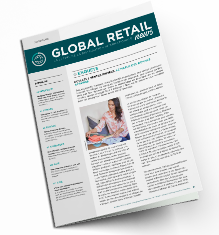Post-Covid-19: Mobilising teams around the customer experience
During the height of the pandemic, retail staff managed the unexpected: inventory, new health and sanitary regulation and customers. When normal trade returns, it is imperative for retailers to enrich and personalise a customer experience. The shorter aim is to encourage a boost in trade, but a longer-term reward is only earned by a customer-centric management strategy.

Dixons Carphone staff giving advice to consumers who remain at home
After reopening stores, how can retailers help their staff move to become customer-centric rather than product-centric, as Thomas Husson, Senior VP Analyst at Forrester suggests, (quoting Marc Cuban, Director of Customer Experience and Marketing at Volkswagen). “To become customer-centric instead of product-centric, you must put customers first. To achieve excellent customer service, employees must embrace the brand on a daily basis.”
In the immediate term, all staff like cashiers, order pickers and store managers must be rewarded and appreciated. The strong social role of e-commerce websites managers has unexpectedly emerged during the crisis. As part of the unavoidable restructuring caused by several months of closure, retailers are keen to retain their in-store sales force. This is the case for Burberry, the brand that built its reputation on the unmistakable Trench coat. The company (turnover €3.02 billion, 465 stores in March 2020) announced a reorganisation across 5% of the global workforce (losing 500 jobs out of 10,000). However, according to Julie Brown, Financial Director, “the workforce reductions will not affect store staff or production”.
In the longer term, retailers must evolve not only structure but also management, training and recruitment methods that adapt to a post-Covid-19 world. This gives pride of place to new technologies which increase productivity and flexibility. In the midst of the crisis, thanks to the flexible mobilisation of staff, retailers realised that new, mixed and flexible solutions all improve customer care and earn loyalty. This is why the British retailer Dixons Carphone (turnover of €11.3 billion for the 2019/2020 financial year ending 2nd May, 950 stores in 9 countries) set up ‘ShopLive’. This is a new (online & offline) customer support and advice service with video chat, now answering 20,000 calls from U.K. customers. The service has grown from only 30 people based in a store to 280 staff by the summer.
According to Alex Baldock, the C.E.O. of Dixons Carphone, this type of service will become the new standard for sales and service of electrical products, where 20% of customers only use the web. “We get both a better conversion rate and higher per capita spend,” he explains. This example “shows that we can deploy our assets in a different way by putting them at the service of the whole company rather than through separate sales channels.”






